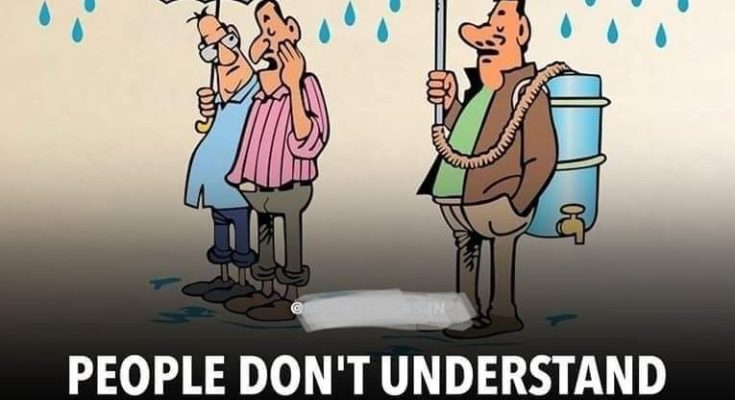Being yourself in a world where others may not understand your perspective is an empowering yet challenging path. It can be difficult to live authentically when people around you fail to see things the way you do, but that’s completely fine. In fact, it’s essential to embrace your unique outlook, for it allows you to experience life in a way that aligns with your core values and beliefs. While others might offer criticism or misunderstand your choices, remaining true to yourself is the only way to live genuinely.
### Embracing Authenticity: The Core of Being Yourself
At its heart, being yourself means living in accordance with your own values, passions, and beliefs, rather than conforming to societal expectations or the opinions of others. Authenticity requires a deep understanding of who you are, what you stand for, and a commitment to honoring that, even when it seems others are unwilling to accept it. This involves continual self-reflection, asking tough questions, and evolving as you discover more about yourself. But in a world that encourages conformity, being yourself can often feel isolating.
### Why People Struggle to Understand Different Perspectives
One of the primary reasons why people may not understand your perspective is that everyone views the world through their own personal lens. Our perspectives are shaped by our experiences, cultures, upbringing, and beliefs. When someone else’s worldview doesn’t align with ours, it becomes hard to fully grasp their perspective. This is especially true in situations where you may hold unconventional views or make decisions that deviate from societal norms.
It’s human nature to default to familiar ideas, often making it difficult to step into someone else’s shoes. This lack of understanding can result in miscommunication, judgment, or outright rejection. But this does not mean you should change who you are to fit into someone else’s mold. The world needs diverse perspectives, and your outlook adds richness and variety to life.
### The Pressure to Conform
The pressure to conform can be immense. From childhood, we’re often told to behave, think, or act in certain ways to fit into specific societal boxes—whether it’s in school, work, relationships, or even how we present ourselves. This pressure can stifle creativity, authenticity, and the true essence of who we are.
When people don’t understand your perspective, there’s often an unspoken expectation to fall in line with what the majority believes or values. Society tends to elevate uniformity and treat it as a benchmark for success, which can leave those who think or act differently feeling excluded. But attempting to fit into these narrow definitions often leads to internal conflict, because your soul craves alignment with your true self.
### The Cost of Not Being Yourself
When you continually suppress who you are to appease others or gain their approval, you risk losing a connection with your true self. The cost of living according to someone else’s expectations can lead to feelings of dissatisfaction, resentment, and a loss of identity. Eventually, you may find that the approval or acceptance you sought from others isn’t as fulfilling as you expected because it didn’t come from a place of authenticity.
Over time, this disconnection from your own desires, passions, and values can manifest in various ways, including anxiety, depression, or a general sense of unhappiness. The weight of not being able to express yourself fully takes a toll, and often the most liberating decision is choosing to be unapologetically yourself, even if it means standing alone.
### The Strength in Self-Acceptance
Understanding that it’s okay for people to not see things from your perspective is an empowering realization. It’s a reminder that the value of your thoughts, feelings, and experiences is not determined by whether others validate them. Your perspective is shaped by your unique journey through life, and that in itself is reason enough to honor it.
Self-acceptance is the antidote to the fear of not being understood. When you accept yourself fully, you free yourself from the need for external validation. The beauty of self-acceptance lies in its transformative power: it helps you move from constantly seeking approval to realizing that your self-worth comes from within.
### Standing Out in a Conformist Society
Those who dare to be different are often met with resistance. Society, by design, is structured to maintain order, and anything that deviates from the norm can be perceived as a threat to that stability. However, many of the world’s greatest innovators, thinkers, and leaders were people whose perspectives didn’t align with the majority. They didn’t let the fact that others didn’t understand them stop them from pursuing their visions and passions.
Take **Albert Einstein**, for example. He was famously misunderstood, even rejected by academia at times, yet his ideas changed the course of science. Similarly, **Rosa Parks** stood against societal norms and racial discrimination when she refused to give up her bus seat. Her act of defiance was a refusal to conform to a world that didn’t understand the necessity of equality and justice.
Both figures remind us that change and progress often come from those who refuse to conform, who remain true to their perspectives and beliefs even in the face of misunderstanding or opposition.
### How to Stay True to Yourself When Others Don’t Understand
1. **Know Your Values**: Understanding your core values is the foundation for staying true to yourself. When you are clear on what you believe in, it becomes easier to navigate through situations where others may not see eye-to-eye with you.
2. **Build Self-Confidence**: Confidence in your beliefs and choices will help you stand firm when others challenge your perspective. This doesn’t mean you have to be arrogant or dismissive of others’ opinions, but it does mean that you don’t waver in your convictions when faced with opposition.
3. **Surround Yourself with Support**: While not everyone will understand or agree with your perspective, it’s essential to find those who appreciate and support you for who you are. Having a community of like-minded individuals can provide comfort and reaffirmation of your uniqueness.
4. **Be Open to Learning**: While being true to yourself is crucial, it’s equally important to remain open to learning from others. Just as you want others to understand your perspective, be willing to explore theirs. This doesn’t mean changing who you are, but it can lead to growth and understanding.
5. **Embrace Discomfort**: Growth often happens outside of our comfort zones. When people don’t understand you, it can be uncomfortable. But this discomfort is often a signal that you’re evolving or challenging the status quo, which can be a powerful place to be.
6. **Let Go of Perfection**: You don’t have to be perfect, and neither does your journey. Authenticity is about embracing who you are, imperfections and all. Let go of the need to be perfectly understood or perfectly accepted by everyone.
### Accepting That It’s Fine to Be Misunderstood
Being misunderstood is a part of life, especially when you’re daring to live authentically. Some people may never fully grasp why you make certain decisions or why you see the world the way you do. But that’s okay. It’s not your responsibility to make everyone understand. Your responsibility is to live your truth as best as you can.
In the grand scheme of things, it’s impossible to please everyone. Attempting to do so often leads to sacrificing parts of yourself. Instead, focus on the relationships and connections that matter, the ones where your perspective is respected, even if it isn’t always fully understood.
### Conclusion
In a world that often demands conformity, being yourself and holding onto your unique perspective can feel like a rebellious act. People may not always understand your point of view, and that’s completely fine. It’s essential to be comfortable in your skin and realize that the value of your perspective isn’t contingent on others’ validation. The journey to self-acceptance and authenticity may come with challenges, but it also offers the greatest reward: the freedom to live a life true to who you are.



